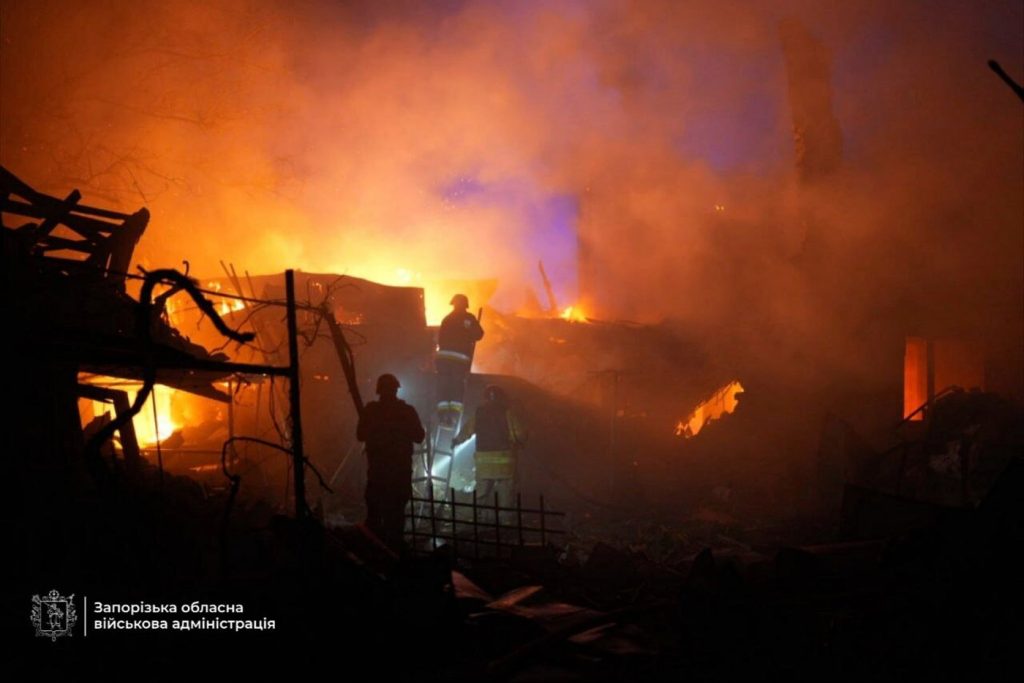KYIV, Ukraine (AP) — Russian forces launched a barrage of rockets on the southern Ukrainian city of Zaporizhzhia overnight, resulting in injuries to at least 13 individuals, including two children. This escalation was reported by officials on Tuesday as Ukrainian President Volodymyr Zelenskyy called upon European leaders to establish a substantial air defense system to secure the continent.
With the conflict ongoing for more than 3.5 years since Russia's full-scale invasion, there has been a consistent pattern of Russian assaults targeting civilian areas across Ukraine. The frontline, which stretches approximately 1,000 kilometers (620 miles), continues to experience relentless pressure from Russian military forces.
Despite extensive efforts led by the United States to broker a peace agreement, a resolution remains elusive. U.S. President Donald Trump’s demands for Russian President Vladimir Putin to engage in discussions to halt the violence have gone unheeded, as deadlines have lapsed without tangible outcomes. Over the past two weeks, Zelenskyy reported via Telegram that Russia has unleashed over 3,500 drones, more than 2,500 powerful glide bombs, and nearly 200 missiles at various targets within Ukraine.
Russian glide bombs, typically deployed by aircraft at high altitudes from behind the frontline, along with drone swarms, pose significant challenges to Ukrainian defense systems. While these glide bombs may lack precision, their large explosive capacity creates substantial craters, and Ukraine has yet to develop effective countermeasures against them.
Moreover, the situation escalated further when Russian drones intruded into Polish airspace, prompting NATO to enhance its air defense capabilities across Europe amid rising tensions with Moscow. Zelenskyy emphasized the urgent need for a collaborative European air defense initiative, stating, “Now is the time to implement the joint protection of our European skies with a multilayered air defense system. All the technologies for this are available. We need investments and desire; we need strong actions and decisions from all our partners.”
In Zaporizhzhia, the overnight Russian attack impacted more than 20 apartment buildings, igniting fires, as reported by regional head Ivan Fedorov during a national television broadcast. He expressed frustration, noting, “We hadn’t yet recovered from enemy strikes on August 30. We are currently repairing those buildings, those windows, but now the enemy has added more work for our municipal workers.”
This ongoing violence and the humanitarian crisis resulting from continuous bombardments underscore the urgency for international attention and action. As the conflict endures without resolution, the toll on civilians remains a critical issue for Ukraine and its allies.











